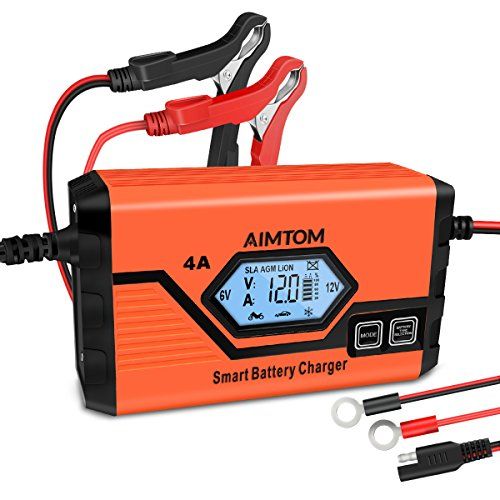No matter how big, strong, and capable your all-terrain vehicle’s battery might be, it still needs a recharge every once in a while. Now, the most popular questions online are “how long to charge ATV battery” and “how can I charge the battery on my own”. Well, that’s exactly why I decided to write this post – to guide you through the process of charging. This isn’t rocket science, but there are still some rules to follow.
Unless you do it properly, you can end up damaging the battery and even the entire powertrain (mostly, the engine). Yep, you heard it right. So, without further ado, let’s get right to it. We’ll start by learning the ideal charging time for ATV batteries and then talk about the actual charging process in more detail, including smart chargers, voltmeters, and more.
The big question is – are there any ideal charging times for ATV batteries, or not? Here are the facts: a full charge usually takes between three to ten hours. This depends on the battery (how old it is, how well you take care of it) and the charger. If you’ve got a high-grade charger, it will need very little time to recharge the battery. Now, it’s important to understand that a “high-grade” unit isn’t the one that transmits a strong current.
It’s actually the other way around. Say, you’ve got a charger that puts out 2 amps. That device will fully recharge an ATV battery in less than four hours. In contrast, a 5-amp charger will get the job done in 9-10 hours. Some chargers have different operating modes. By switching to the float/drip mode, you can expect the battery to reach a full charge in 4.5-5 hours.
The most important thing to remember when dealing with ATV batteries is to make sure you’ve got the right device for charging. I’m talking about voltage, of course. Keep in mind that four-wheeler batteries are pretty fragile. So, if you were wondering – how to charge an ATV battery with car charger – here’s my answer. You shouldn’t really use a regular car charger to “fire up” an ATV battery.
You shouldn’t really use a regular car charger to “fire up” an ATV battery.
The reason: it usually has a rather high power output (up to 10 amps, or more). That kind of charge will, most likely, cause a quad vehicle’s battery to overheat, which leads to permanent damage and maybe even a malfunction in the engine. Only consider using a car charger if it’s a customizable device that allows limiting the output. If that’s the case, put the threshold/limit at 2-3 amps, and give it a try.
Again, this largely depends on the quality of the battery unit and your maintenance routine. If you want to know the average lifespan, it’s 3 to 4 years. There is little point in buying some of the more expensive batteries because their life expectancy won’t be significantly higher compared to the cheaper options. Some experts claim that the more you charge a battery, the less reliable and durable it becomes.
That doesn’t mean you shouldn’t charge it at all, of course.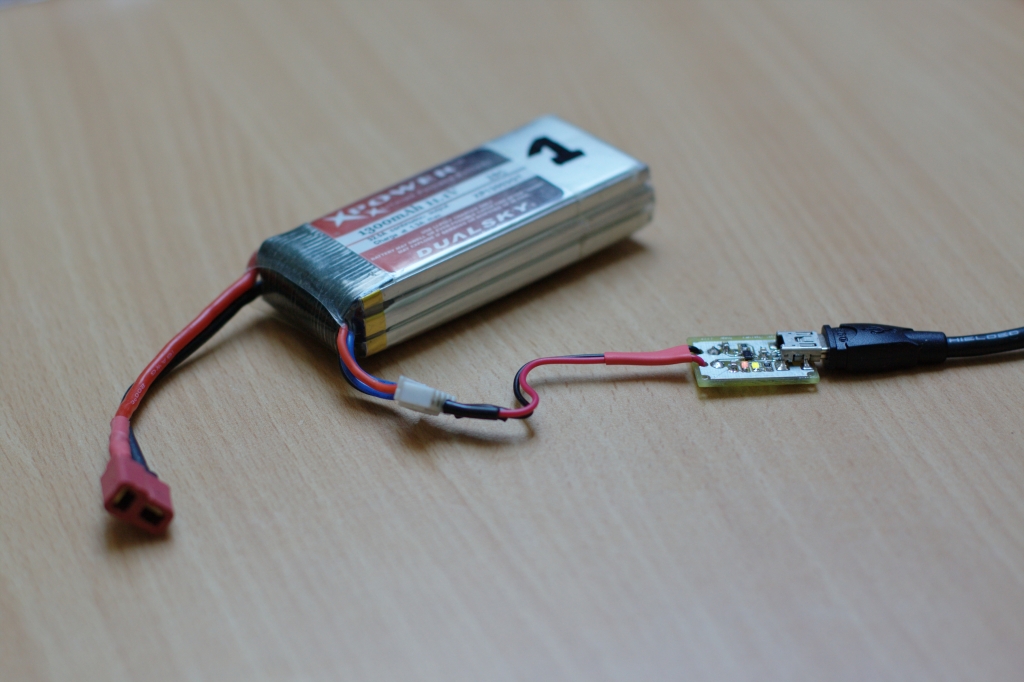 What I would recommend is to constantly check on the charge levels. There are actually pretty clear instructions for this: only consider charging the battery when its voltage drops below 12.4 volts. If it’s higher, there will be little use in “refilling” the charge. I also want to say that the quality of the charger affects the lifespan of the battery as well.
What I would recommend is to constantly check on the charge levels. There are actually pretty clear instructions for this: only consider charging the battery when its voltage drops below 12.4 volts. If it’s higher, there will be little use in “refilling” the charge. I also want to say that the quality of the charger affects the lifespan of the battery as well.
Alright, so, by now, we’ve talked about the right charging times for quad batteries, learned how long the average battery lasts and familiarized ourselves with some safety precautions. We still have one “stop” to make. With the basics out of the way, let’s go ahead and learn how to charge ATV battery. The best way to do this is to invest in a decent-quality smart charger. These are available for 70-80 US dollars and last for many years, if not decades.
The best thing about smart chargers is that they are compatible with a long line of four-wheelers and have wires-connections for pretty much every single ATV battery on the market. Another big pro: most reasonably-priced smart chargers have a built-in system that stops the charging process once the battery reaches a full charge. That prevents it from damaging the battery (yes, overly long charging times are known to cause overheating, among other things).
Another big pro: most reasonably-priced smart chargers have a built-in system that stops the charging process once the battery reaches a full charge. That prevents it from damaging the battery (yes, overly long charging times are known to cause overheating, among other things).
The less expensive chargers don’t have this feature, and you’ll have to turn them off manually.
Don’t worry: there’s nothing hard about using a smart charger. You will, however, need a screwdriver (or, at least, a wrench) to remove the plastic side panel and access the “insides” of your quad vehicle. In some cases, the seat will have to be removed as well. At this point, you’ve got a choice to make: either leave the battery where it is or remove it. I recommend taking it out completely.
That way, it will be much easier to disconnect it from the ATV. This is important: make sure every single wire is disconnected before charging the battery! Next, use the clamps provided with the charger to connect to the battery unit.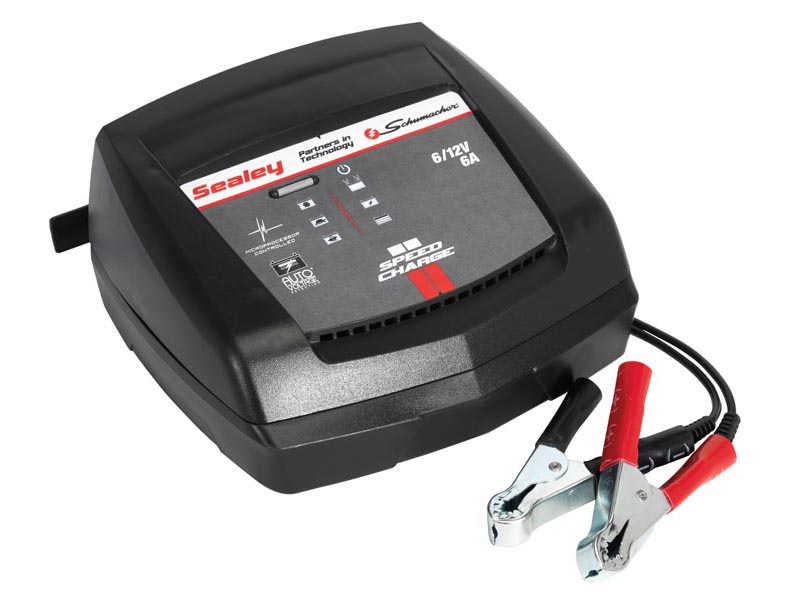 The positive lead is colored red and should connect to the positive terminal of the ATV battery. The negative lead, in turn, is usually black and is used for grounding.
The positive lead is colored red and should connect to the positive terminal of the ATV battery. The negative lead, in turn, is usually black and is used for grounding.
A clean, bare metallic surface will do just fine. I usually connect the negative to my all-terrain vehicle’s frame. The connectors should always be sparkly-clean – even the tiniest dust particles can cause some trouble. Plus, don’t forget to get a pair of protective gloves and eyewear. The acid inside of batteries is pretty toxic for the human skin.
Once you’re done, disconnect the charger and give the battery a try. I always let it sit for at least a couple of hours before using a voltmeter to measure the charge. If the battery can’t hold the charge properly, chances are, you’re dealing with a dead unit that needs to be replaced.
Ok, that concludes my guide into the world of ATV batteries. If you don’t want to spend big bucks on a new battery or pay a mechanic to charge it, you need to at least know the basics of proper charging. As we learned today, all-terrain-vehicle batteries are pretty fragile and sensitive, which means they need chargers with a specific power output to work correctly. Once you get to know the basics, it will be much easier to do everything on your own.
If you don’t want to spend big bucks on a new battery or pay a mechanic to charge it, you need to at least know the basics of proper charging. As we learned today, all-terrain-vehicle batteries are pretty fragile and sensitive, which means they need chargers with a specific power output to work correctly. Once you get to know the basics, it will be much easier to do everything on your own.
It’s all about following the rules and using the right equipment and techniques for charging. And if you still have some questions left, don’t hesitate to reach out to me! Or, use the comments section to share your thoughts, tips, and tricks for the less experienced readers. Take care of your ATV, and happy travels!
Charging and maintaining your ATV battery properly is a very important thing you need to do because if you do it incorrectly, you can do a lot of damage to it.
It is important to know how to recharge it properly and to give it the time needed so as not to damage and shorten its life.
Today I will show you all the things you need to know about your ATV battery and how to recharge it properly.
A full charge will take between 3.5 hours to 10 hours however, the charge time varies from battery to battery, and it all depends on the quality of your charger.
For example, a small ATV battery, using a charger that transmits a current of 5 amps, can fully charge in 10 hours.
If you use a 2-amp charger, your battery can be recharged fully within 3.5 hours.
If you use a charger that has a drip or float mode, your charger will roll upstream and it will take a little longer to fully charge your battery, so it may take 4.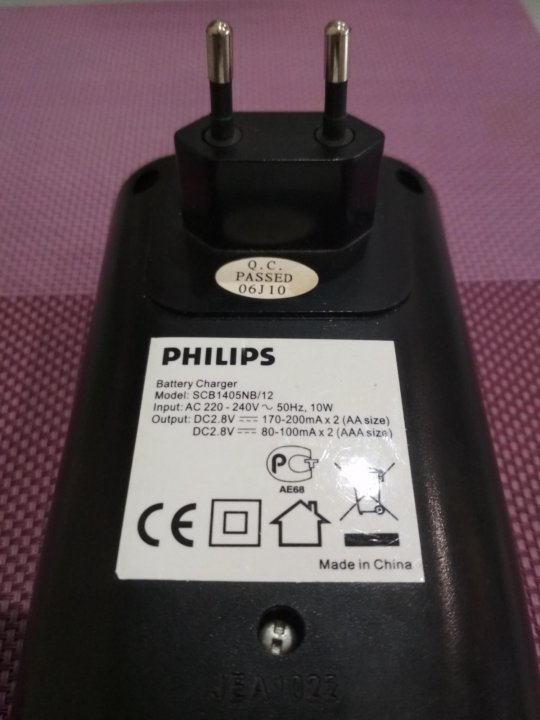 5 hours to charge. in addition, if you want to get a very fast charge for your ATV battery I highly recommend this amazing ATV charger that is the best you can find on Amazon that sold this week for sale in a very cheap price. Click here to view.
5 hours to charge. in addition, if you want to get a very fast charge for your ATV battery I highly recommend this amazing ATV charger that is the best you can find on Amazon that sold this week for sale in a very cheap price. Click here to view.
Also, your ATV battery should not be charged for too long because it can damage its life span. It is very important to read the manufacturer’s instructions and see the recommended recharge time for your battery.
The average life span of an ATV battery is between 3 to 4 years, maybe more in rare cases. It depends on a lot of different factors such as the quality of the battery, the quality of the charge, the level of use and many other factors, which I will introduce to you now.
Battery quality – The life of your ATV battery depends mainly on the type of battery you use. For example, if you use batteries from popular companies like Honda, the battery will be of a good quality and you can expect a long life span.
For example, my friend had the battery model King Quad 300 Yuasa that managed to survive for 9 years, even though it was used many times.
Battery usage – Another factor that greatly affects the battery’s life is how much you use it. In fact, if you use your battery daily or weekly its life will be significantly shortened. On the other hand, if you rarely use your battery, it can last for a very long time.
Temperature – Temperature is a super important factor that significantly affects batteries. If your battery is often used in very cold or very hot weather, it can decompose its acids and internal components, which damages the battery and shortens its life. Because of this, I recommend keeping your battery where the temperatures are not too hot or too cold, a closed room for example.
Also, if you live in a very cold place in the winter, I recommend that you cover your battery with a blanket or towel to help keep it warm. On the other hand, if you live in a place where it is very hot in the summer, I would recommend that you turn on the air conditioner at an average temperature to help keep the battery cool.
Charger quality – If you use a cheap and low-quality charger, you can definitely shorten your battery life very quickly. In fact, the best charger to use is the original one that came with your battery when you bought it because it is already compatible with its components.
It’s very important that you pay attention to each of these factors to help ensure your battery has a long life.
If you want to maintain and extend the life of your ATV battery, these are some of the things you can do.
Cleaning your ATV battery can significantly help and impact its lifespan.
To clean your ATV battery, you need to make sure the terminals are clean. Dirty terminals could damage your battery and significantly shorten its life.
As I said earlier in the post, temperature is one of the factors that most damages the life of your ATV battery.
Cold temperatures are significantly more damaging to battery life than hot temperatures. Also, a cold battery can deplete your engine’s energy and make it even worse for your ATV engine’s life.
Also, a cold battery can deplete your engine’s energy and make it even worse for your ATV engine’s life.
To help keep your battery safe from the cold, I highly recommend you put it in a warm garage or even in a plastic or rubber protector to keep it warm.
Keeping your battery fully charged can significantly extend its life expectancy.
Also, I recommend that you take a portable charger with you when you ride your ATV so that you can charge it while riding. That way you will be able to keep the battery charged.
In addition, it is very important to be careful not to overcharge it so that you don’t overheat the battery, which can damage it.
If you do not know if you need to replace your ATV battery, this is your lucky day. I will give you a few examples to help you know if your battery needs replacing.
 This means you have to replace the battery.
This means you have to replace the battery.To summarize today, I have shown you all the things you need to know about charging your ATV and UTV battery.
If you want to know how to recharge your ATV or UTV battery properly, I highly recommend you go and read the post I wrote on the topic.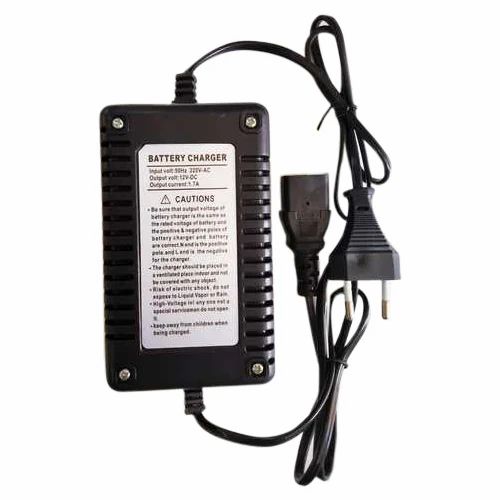 Click here to view.
Click here to view.
Thanks for riding. Until next time.
The ATV battery is one of the most important elements in its electrical system. Given the amount of additional equipment installed on the ATV (winches, additional lights, alarms, heating, etc.), the battery often does not charge to the end. And the owners do not pay due attention to this, which is why they change the battery every season. Believe me, with proper care, the battery can last 3 or more seasons. Let's pay attention to the rules for charging your ATV battery, consider errors and answer questions that arise when servicing the battery.
Warning. The conversation for the most part will be about serviced batteries. Maintenance free ones have no plugs (at the top of the battery) and only need a timely and full charge, and their owners may skip some of the points described below.
Can I use a car charger to charge my ATV battery?
It is possible, in the case when the charger has a charge current adjustment and it is possible to set the minimum current from 0. 5 to 0.7.A. There is a simple rule: one tenth of the battery capacity will be considered the normal current for charging (calculation should be made in Amperes). Of course, it is much easier and more correct to use special devices designed for low charging current. Complete with the charger always comes instructions for use, which contains the basic requirements and rules, do not neglect to read it.
5 to 0.7.A. There is a simple rule: one tenth of the battery capacity will be considered the normal current for charging (calculation should be made in Amperes). Of course, it is much easier and more correct to use special devices designed for low charging current. Complete with the charger always comes instructions for use, which contains the basic requirements and rules, do not neglect to read it.
Is charging noise and boiling normal?
Moderate boiling is normal. This is explained by the reaction in which the electrolyte enters with lead plates, in which the acid releases a certain amount of gas. It is worth worrying if the boiling is excessively strong - this indicates that the charge current has been exceeded.
Why does a new battery drain quickly?
 6 volts;
6 volts; What is sulfation?
Sulfation is the formation of lead sulfate (white matter) on the battery plates.
All old and failed batteries are subject to this phenomenon.
What affects the sulfation process?
How to avoid sulfation?
Monitor the condition of the ATV's electrical system at all times. The battery loses its charge significantly during engine start, and the charge must be replenished when driving, so monitor the health of the regulator and generator relays. When the ATV is not used for a long time, remove the battery and charge it with the charger at least once every 2 months. When the first signs of sulfation appear, charge the battery with low current for a long time (up to 2 or more days).
The battery loses its charge significantly during engine start, and the charge must be replenished when driving, so monitor the health of the regulator and generator relays. When the ATV is not used for a long time, remove the battery and charge it with the charger at least once every 2 months. When the first signs of sulfation appear, charge the battery with low current for a long time (up to 2 or more days).
Amps / hours - what is the characteristic?
This is the unit in which the battery capacity is measured. For example, a fully charged battery with a capacity of 1 Ah should theoretically provide a current of 1 ampere for an hour.
How and why to monitor the electrolyte level?
The electrolyte is sulfuric acid diluted with water in the right proportion. During operation, water evaporates, and the proportion of sulfuric acid increases, which, in turn, adversely affects the health of the battery.
If the electrolyte level drops (each battery has a normal level mark), add distilled water (available from auto parts stores) to the mark.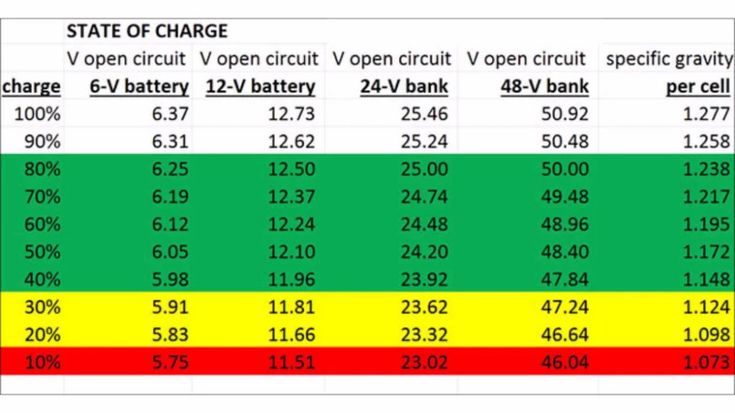
How can I tell if the battery is charged?
A charged battery produces 12.8V. If your multimeter measures 12.5V or less, the battery needs to be charged.
Which terminal should be connected first when installing the battery on the ATV?
Always connect the positive terminal first. When connecting the wire to the terminal, a spark may occur, so all flammable liquids must be removed in advance. Always tighten the bolts on the terminals firmly to avoid short circuits. The terminals can be treated with a lubricant to prevent oxidation.
What happens if the polarity is reversed?
Always respect the polarity - wrong polarity can lead to a blown fuse at best and an exploding battery at worst.
How to store the battery in winter?
If you do not use the ATV in winter, the battery must be removed and stored in a cool place, and charged several times during the winter with a small current.
As you can see, there are no difficulties in maintaining the battery, following simple rules will significantly extend battery life and save your finances.
And how to properly charge the battery, we will learn by watching the video.
Electric ATVs are rapidly gaining popularity due to their economy and environmental friendliness. But many riders still do not know how to charge an ATV on a battery. Improper charging reduces the battery life or the battery loses its capacity quickly. Therefore, let's figure out how to charge a children's ATV and consider the key recommendations of experts.
There are two ways to charge your ATV battery. The first and easiest is to connect the charger to the appropriate connector.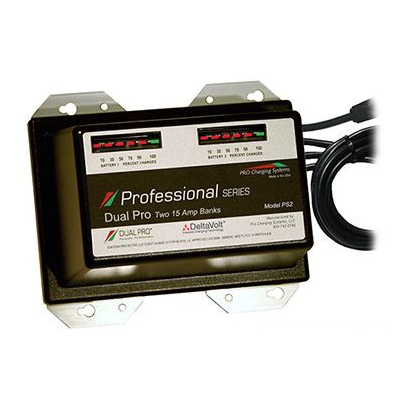 All electric cars and scooters are charged in a similar way, although not all quadrics have a similar socket.
All electric cars and scooters are charged in a similar way, although not all quadrics have a similar socket.
If the ATV does not have a charging port, the rider will have to connect the battery directly to the charging station. To do this, you need:
It is important to note that lithium batteries have a charge level control board. This means that after a full charge, the process stops. Although overcharging the battery is still not recommended.
Another important question many riders are wondering is how to charge an ATV battery with an in-car charger. Yes, such a procedure is possible, but you need to properly configure the charger.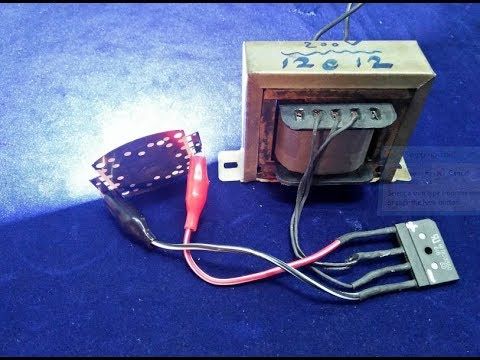 For recharging, you can only use devices with adjustable charging current and the ability to set its minimum level (0.5-0.7 A).
For recharging, you can only use devices with adjustable charging current and the ability to set its minimum level (0.5-0.7 A).
Important : The optimal current for battery charging is 1/10 of the battery capacity (in Amps).
The instructions for each ATV indicate the optimum battery charging time. On average, this figure is 6-12 hours. The charging time depends on the generation of the battery, its capacity and the characteristics of the charger. Don't forget to charge the battery, though. If the battery has 30-40% capacity left, the recharging time should be reduced.
But what if you don't know how long to charge your ATV battery? In this case, you need to almost completely discharge the battery and charge it for 8 hours. After that, the battery should be installed on the quadric, and the charge level should be assessed. If the indicator shows 100%, next time you need to charge the battery for 6-7 hours. In this way, you can determine the optimal recharging time.
In this way, you can determine the optimal recharging time.
Also remember that overcharging is the main enemy of batteries. It is strongly not recommended to leave the battery connected to the network for 15-20 hours. This leads to a decrease in battery capacity and, accordingly, a decrease in the operating time of the quadric.
Knowing how long it takes to charge an ATV, you can make a schedule for recharging it. For example, the battery can be connected to the network in the evening or after each trip. You can also purchase a replacement battery, thereby increasing the riding time on the ATV.
The battery of any electrical equipment must be properly maintained. Violation of the recommendations may lead to a decrease in battery capacity or damage to it. To avoid such problems, it is recommended:
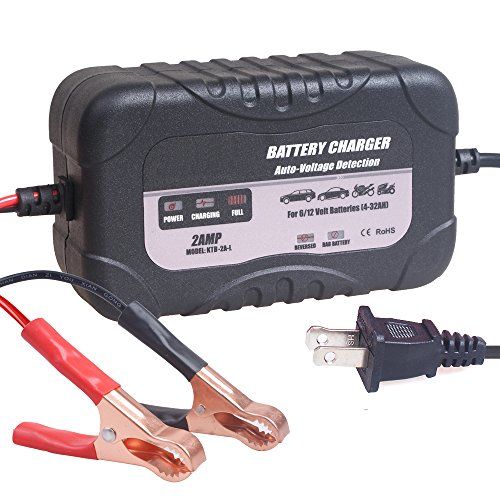
Separately, it is worth mentioning the "buildup" of the battery. Immediately after purchasing the equipment, you will need to fully charge and charge the ATV several times (2-3 times).
Most riders store their motorcycles before winter. And in order for the device to be ready for operation in the spring, it must be properly preserved. Preparing an electric quad bike for wintering is quite simple, you just need to find a warm and dry place to store the quad.
Another important conservation point is battery preparation.